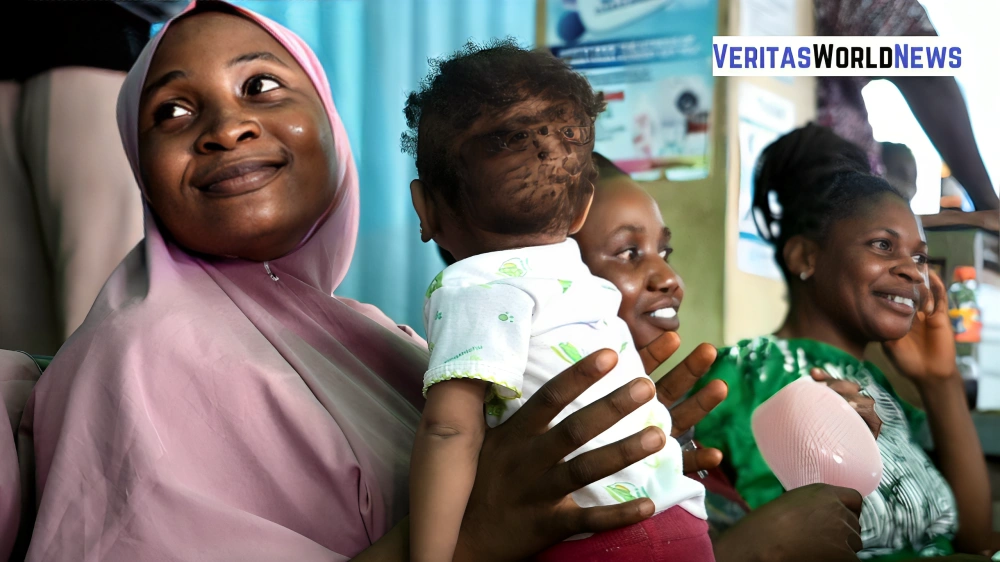
Abuja, Nigeria— In a landmark health initiative, Nigeria has commenced the rollout of a groundbreaking malaria vaccine targeting young children. Developed by Oxford University, the R21/Matrix-M vaccine is a critical step in combating the world’s highest malaria burden, which accounts for approximately 27% of global cases and 32% of malaria-related deaths.
The vaccination campaign aims to significantly reduce severe malaria cases and fatalities among children under the age of five, who are disproportionately affected by the disease.
Malaria in Nigeria: A Grim Reality
1. A Leading Cause of Death
Malaria remains one of Nigeria’s most pressing public health challenges, particularly in rural areas where access to preventive measures and healthcare is limited.
- Statistics: Malaria kills approximately 200,000 Nigerians annually, most of whom are children under five.
2. Economic Impact
The disease costs Nigeria an estimated $1.1 billion annually in healthcare expenses, lost productivity, and reduced economic output.
About the Oxford Malaria Vaccine

Development and Efficacy
- Developer: The vaccine was developed by Oxford University and manufactured by the Serum Institute of India.
- Efficacy: Clinical trials in Africa demonstrated up to 80% efficacy when administered in a booster dose schedule.
Distribution Plan
- Target Groups: Children aged 5–36 months in high-risk areas will receive the vaccine in phases.
- Global Collaboration: The rollout is supported by Gavi, the Vaccine Alliance, and the World Health Organization (WHO).
Reactions to the Vaccine Rollout
Government Officials
President Bola Ahmed Tinubu praised the initiative, stating, “This vaccine represents hope for millions of Nigerian families who have suffered the devastating impact of malaria for generations.”
Health Experts
Dr. Ifedayo Adetifa, Director-General of the Nigeria Centre for Disease Control, emphasized that the vaccine is a “game-changer” in the fight against malaria, while cautioning that other preventive measures like insecticide-treated nets and environmental sanitation remain essential.
Global Health Community

The WHO welcomed Nigeria’s leadership in adopting the vaccine, calling it a “turning point” for malaria control efforts worldwide.
Public Opinion: What’s True and Untrue?
- True:
- The R21 vaccine has shown high efficacy in preventing severe malaria.
- Nigeria’s leadership in adopting the vaccine underscores its commitment to tackling public health crises.
- Untrue:
- Claims that the vaccine alone will eradicate malaria overlook the need for a comprehensive strategy including vector control, education, and robust healthcare infrastructure.
As Veritas World News notes, “The malaria vaccine is a significant step forward, but sustained efforts across multiple sectors are required to eliminate this deadly disease.”
Challenges and Opportunities
1. Logistical Hurdles
Distributing the vaccine to Nigeria’s vast and diverse population poses logistical challenges, particularly in remote areas.
2. Funding and Sustainability
Ensuring long-term funding for the vaccine program will be critical to its success.
3. Potential for Eradication
While the vaccine offers new hope, experts caution that malaria eradication will require sustained investment in research, infrastructure, and public education.
Conclusion: A Historic Moment in Global Health
Nigeria’s rollout of the Oxford-developed malaria vaccine represents a significant milestone in the fight against a disease that has plagued humanity for centuries. By prioritizing the health of its youngest and most vulnerable citizens, Nigeria is setting an example for the global community.
As Veritas World News observes, “The fight against malaria is far from over, but with tools like the R21 vaccine, victory is closer than ever.”
#Nigeria #MalariaVaccine #PublicHealth #GlobalHealth #VeritasWorldNews
